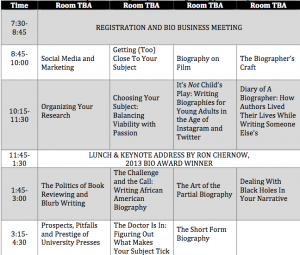Friday Finds for Writers
 Writing-related resources, news, and reflections to read over the weekend.
Writing-related resources, news, and reflections to read over the weekend.
Have a great weekend, everyone. See you back here on Monday!
 Writing-related resources, news, and reflections to read over the weekend.
Writing-related resources, news, and reflections to read over the weekend.
Have a great weekend, everyone. See you back here on Monday!
 This evening will be special: I will be meeting with the Young Friends group at the Museum of Jewish Heritage downtown to talk about my story collection, Quiet Americans. The icing on the cake is that after our discussion, we’ll be able to tour the museum’s new exhibit, “Against the Odds: American Jews and the Rescue of Europe’s Refugees, 1933-1941.”
This evening will be special: I will be meeting with the Young Friends group at the Museum of Jewish Heritage downtown to talk about my story collection, Quiet Americans. The icing on the cake is that after our discussion, we’ll be able to tour the museum’s new exhibit, “Against the Odds: American Jews and the Rescue of Europe’s Refugees, 1933-1941.”
The exhibit opened last week, and it has already received some excellent press coverage. (See, for example, The Wall Street Journal and this Associated Press item in The Huffington Post.)
Most of you who visit this blog regularly know that my paternal grandparents, whose experiences inspired much of Quiet Americans, were German Jews who found refuge in the United States in the late 1930s. So I’m sure you can understand why I’m especially moved to have the opportunity to share the book and see the exhibit on the same evening. And why I think that it’s something very special.
Monday brings the weekly batch of no-fee competitions/contests, paying submission calls, and jobs for those of us who write (especially those of us who write fiction, poetry, and creative nonfiction). (more…)
 Writing-related resources, news, and reflections to read over the weekend.
Writing-related resources, news, and reflections to read over the weekend.
Have a great weekend, everyone. Yes, Monday’s a holiday here in the U.S., but the blog will be back then nonetheless!
 Last weekend, I had the happy opportunity to spend a few hours at the fourth annual “Compleat Biographer Conference” organized by the smart and intrepid folks behind Biographers International Organization (BIO), “the only organization of its kind, completely devoted to all aspects of the art and craft of biography.” The conference migrates. This year, it took place here in New York City; when I was offered the chance to visit, I snapped up the opportunity.
Last weekend, I had the happy opportunity to spend a few hours at the fourth annual “Compleat Biographer Conference” organized by the smart and intrepid folks behind Biographers International Organization (BIO), “the only organization of its kind, completely devoted to all aspects of the art and craft of biography.” The conference migrates. This year, it took place here in New York City; when I was offered the chance to visit, I snapped up the opportunity.
As a child, I was blessed with an early love for reading that was sustained, in part, by feeding a hearty appetite for biographies. I gobbled up the standard early-elementary introductions to Abraham Lincoln and other stalwarts, but I also read (and reread) a collection of profiles of other (albeit less) famous Americans published by Highlights. I was also an avid consumer of the Scholastic Book Club titles, and I remember in particular one book, They Led the Way: 14 American Women, which I encountered just a few years after its 1973 publication.
So maybe it’s not all that surprising that some of my earliest freelancing assignments were biographical profiles for encyclopedias. Or that my first idea for a history dissertation topic was a biography, of a French author and activist named Suzanne Prou (here’s the New York Times obituary that inspired my interest). My dissertation ended up taking a different direction, but I’m still drawn to biographies as a reader. (Most recently, I’ve read Jonathan Kirsch’s new biography of “boy avenger” Herschel Grynszpan, and I’ve just published a Q&A with the author on my other blog.) I continue to look for and file away possible subject ideas for my own writing purposes.
All of which is to explain why I’ve followed the development of BIO (I wrote a brief profile of the organization for The Writer magazine some years ago), and why I was so pleased to visit the conference. If I ever do plunge more bravely into the waters of biography-writing, I’ll definitely depend on BIO for guidance.